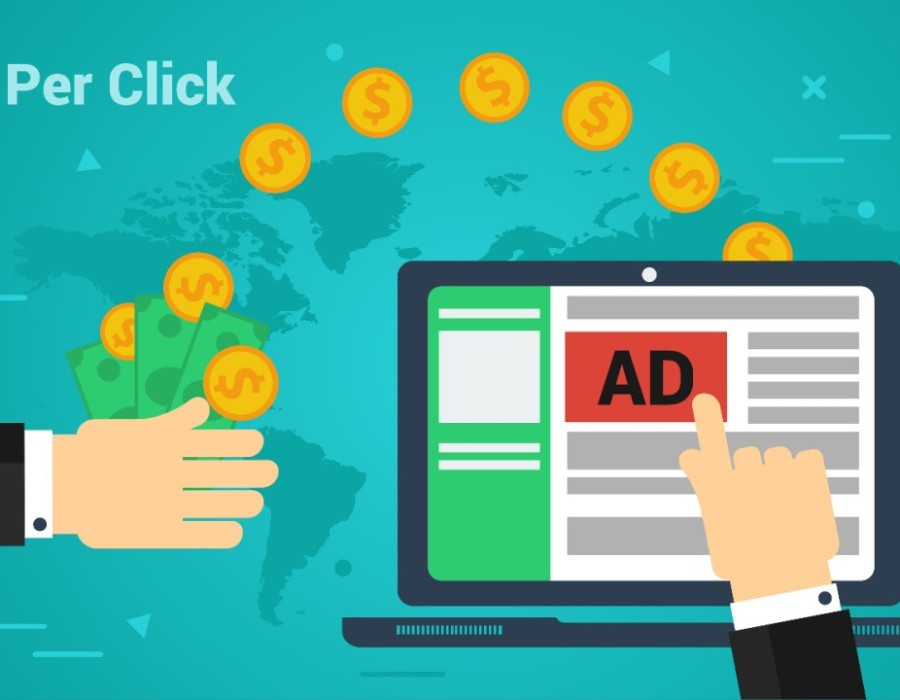In today's digital age, Pay-Per-Click (PPC) marketing has emerged as a powerful tool for businesses to reach their target audience effectively. With the right strategies, PPC campaigns can drive traffic, increase conversions, and boost revenue. However, navigating the complex world of PPC advertising requires expertise and a deep understanding of the ever-evolving digital landscape. In this comprehensive guide, we'll delve into the fundamentals of PPC marketing and explore strategies to help you maximize your ROI.
Understanding PPC Marketing
PPC marketing is an online advertising model where advertisers pay a fee each time their ad is clicked. It's a way of buying visits to your site rather than attempting to earn those visits organically. The most common type of PPC advertising is search engine advertising, where advertisers bid for ad placement in a search engine's sponsored links when someone searches on a keyword related to their business offering.
Key Components of PPC Campaigns
- Keyword Research: Keywords form the foundation of any successful PPC campaign. Conduct thorough keyword research to identify relevant terms and phrases that your target audience is searching for. Tools like Google Keyword Planner, SEMrush, and Moz Keyword Explorer can help you uncover valuable insights.
- Compelling Ad Copy: Craft compelling ad copy that resonates with your audience and encourages clicks. Highlight unique selling points, promotions, or special offers to entice users to click on your ad. A/B testing different ad variations can help optimize performance over time.
- Landing Page Optimization: Once users click on your ad, it's crucial to deliver a seamless experience on your landing page. Ensure that your landing page is relevant to the ad's messaging and provides clear calls-to-action (CTAs) to encourage conversions. Test different elements such as headlines, copy, and images to maximize conversion rates.
- Bid Management: Effective bid management is essential for controlling costs and maximizing ROI. Monitor your bids regularly, adjusting them based on factors such as keyword performance, competition, and budget constraints. Automated bidding tools can streamline this process and help optimize performance.
- Ad Extensions: Take advantage of ad extensions to provide additional information and improve ad visibility. Extensions such as sitelinks, callouts, and structured snippets can enhance your ad's relevance and attract more clicks. Experiment with different extensions to see which ones resonate best with your audience.
Strategies for PPC Success
- Segmentation: Segment your campaigns and ad groups based on factors such as demographics, geography, or device type. This allows you to tailor your messaging and bidding strategies to specific audience segments, increasing relevance and driving higher engagement.
- Remarketing: Implement remarketing campaigns to re-engage users who have previously visited your website but haven't converted. By targeting these users with personalized ads based on their past interactions, you can nurture them through the conversion funnel and drive repeat business.
- Ad Testing: Continuously test and optimize your ad creatives to improve performance. Experiment with different headlines, descriptions, and CTAs to identify what resonates best with your audience. Utilize A/B testing methodologies to make data-driven decisions and iterate on your campaigns.
- Conversion Tracking: Implement robust conversion tracking to measure the effectiveness of your PPC campaigns. Set up conversion goals within your advertising platform and track key metrics such as lead generation, sales, or sign-ups. Analyze conversion data to identify areas for improvement and optimize campaign performance.
- Budget Allocation: Allocate your budget strategically across campaigns and channels based on performance and business objectives. Focus your spending on high-performing keywords and campaigns while reallocating resources away from underperforming areas. Regularly review your budget allocation to ensure alignment with your overall marketing strategy.
Emerging Trends in PPC Marketing
- AI and Machine Learning: AI and machine learning technologies are transforming the PPC landscape, enabling more sophisticated targeting, bidding, and ad optimization. Embrace automation tools and algorithms to streamline campaign management and improve performance.
- Voice Search: With the growing popularity of voice-activated devices, optimizing your PPC campaigns for voice search queries is becoming increasingly important. Focus on long-tail keywords and conversational phrases that mirror natural language patterns to capture voice search traffic effectively.
- Local Advertising: Local PPC advertising presents significant opportunities for businesses with physical locations. Utilize location-based targeting and ad extensions to reach local audiences with relevant messaging and drive foot traffic to your stores or offices.
- Video Advertising: Video ads are gaining traction across digital platforms, offering engaging and immersive experiences for users. Incorporate video into your PPC campaigns to capture attention and convey your brand message effectively. Platforms like YouTube and Facebook offer robust targeting options for reaching your desired audience.
- Privacy Regulations: With increasing concerns about data privacy and online tracking, compliance with privacy regulations such as GDPR and CCPA is crucial for PPC advertisers. Ensure transparency and accountability in your data practices and respect user preferences regarding data usage and tracking.
Conclusion
PPC marketing remains a valuable strategy for businesses looking to expand their online presence and drive measurable results. By understanding the key components of PPC campaigns and implementing effective strategies, you can maximize your ROI and stay ahead in the competitive digital landscape. Continuously monitor performance, adapt to emerging trends, and refine your approach to ensure long-term success in PPC advertising.





Comments